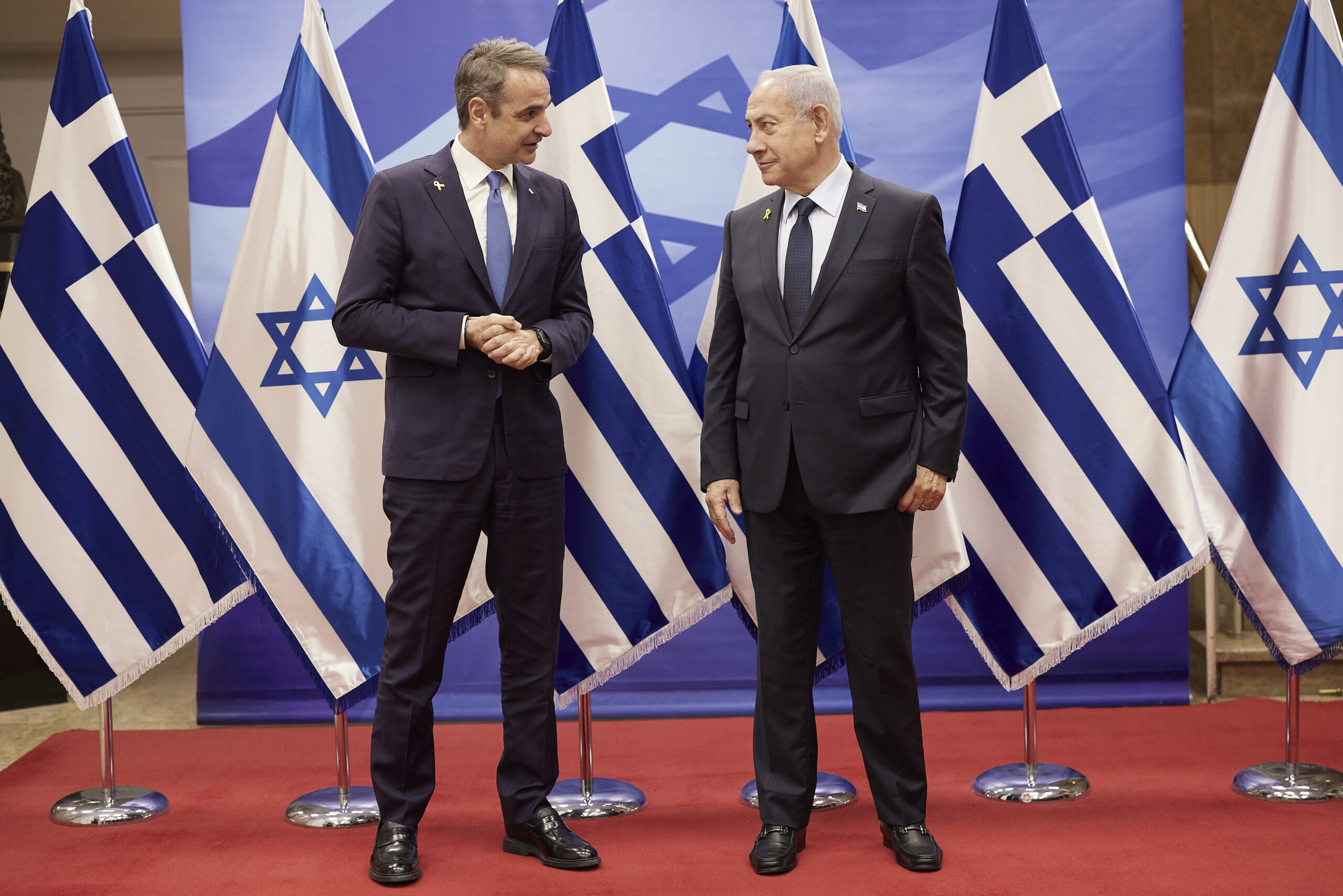Brussels – On Wednesday, April 2, Israeli Prime Minister Benjamin Netanyahu will set foot on European soil for the first time since the International Criminal Court (ICC) issued an arrest warrant for him. He will be hosted by Viktor Orbán, who has already broken taboos that, on closer inspection, are too much even for his European counterparts. From future German Chancellor Friedrich Merz to French President Emmanuel Macron and Italian Foreign Minister Antonio Tajani, there are already several EU countries that have questioned – if not outright rejected – the possibility of prosecuting Netanyahu for war crimes and crimes against humanity committed in Gaza.
Over the weekend, Greek Prime Minister Kyriakos Mitsotakis crossed the first red line, meeting Netanyahu in Jerusalem, just as — on the first day of Eid al-Fitr, the holiday that marks the end of Ramadan — Israeli raids on Gaza reportedly killed at least 64 Palestinians. The two “reaffirmed the strategic relationship between Greece and Israel” and discussed “the further deepening of bilateral cooperation, particularly in the field of defense.”

Since November 21 of last year, when the Hague Tribunal issued arrest warrants for Netanyahu and former Israeli Defense Minister Yoav Gallant, no European leader had yet met in person with the head of the Israeli government. But in fact, none of the 27 member states has cut ties with the man accused of war crimes, as was done with Russian President Vladimir Putin, on whom the same international arrest warrant looms. Last night, Macron disclosed an account of a phone call with Netanyahu, in which he reiterated that “the release of all hostages and the security of Israel are a priority for France” and asked, “the Israeli prime minister to end the attacks on Gaza and return to the ceasefire, which Hamas must accept.”
Paris had been among the first EU capitals to question the legitimacy of the arrest warrant, calling into question an article of the Rome Statute — on which the Court was founded — that would grant immunity to states that are not members of the ICC. The French Foreign Ministry was followed closely by the Italian one, with Tajani arguing that the arrest warrant could not be applied at least until the end of Netanyahu’s tenure and then reiterating on different occasions that Italy would not arrest the Israeli premier. Rome already went against international law by choosing to escort the torturer and head of the judicial police in Tripoli, Najim Osama Al Masri, who is wanted by the Hague Tribunal for war crimes, murder, torture, and cruel treatment, on a state flight back to Libya.
Berlin instead stressed that the German position could only be a result of “German history” and the “great responsibility” Germany felt toward Israel after the extermination of Jews perpetrated by the Nazi regime. Chancellor-elect Friedrich Merz then openly challenged the Court, calling the idea that an Israeli prime minister cannot visit Germany “completely absurd” and explicitly inviting Netanyahu to the Federal Republic.

Berlin, Rome, and Paris, as well as all 27 EU countries, are part of the International Criminal Court and are therefore bound to enforce its decisions. In the end, the first to host Netanyahu in this disturbing race to violate international law will be Orbán, who, from the beginning, called the arrest warrant “shameful” and announced that he would not execute it. After the US decision to impose sanctions against the ICC, Orbán announced his intention to “review Hungary’s commitment” to a tribunal “degraded to a partisan political tool.”
The two are expected to discuss the plan for Gaza’s future. Netanyahu – despite the international community’s support for the plan drawn up by Arab countries – is convinced that he can broaden consensus on Trump’s controversial and vague proposal, which envisions the “voluntary migration” of the local population and the transformation of the Gaza Strip into a luxury resort open to international tourism.
Orbán’s support for Trump and Netanyahu’s plan goes against the position taken by the European Union, which instead supports the Arab initiative and strongly opposes any attempt at forced emigration of the Gazawi population. On closer inspection, Netanyahu’s trip to Hungary should also be read as another provocation by the Hungarian prime minister against Brussels, which continues to pay lip service to the Criminal Court. “As stated in the 2023 Council Conclusions, the Council calls on all states to ensure full cooperation with the Court, including through the swift execution of outstanding arrest warrants, and to enter into voluntary agreements,” a European Commission spokesperson said again about the matter.
English version by the Translation Service of Withub









